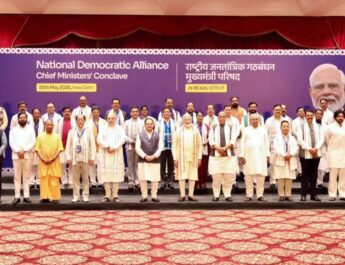Nomination of persons with disabilities to local bodies is a pioneering move
New Delhi: Affirmative action continues to be one of the most effective strategies for rectifying historical injustices and addressing systemic inequalities. The latest initiative aimed at combating entrenched discrimination against individuals with disabilities in Tamil Nadu is poised to significantly benefit the community. Chief Minister M.K. Stalin recently introduced two Bills in the Assembly designed to enhance the representation of persons with disabilities in all local governing bodies within the State. One Bill proposes the nomination of individuals with disabilities to all town panchayats, municipal councils, and municipal corporations by amending the Tamil Nadu Urban Local Bodies Act. The second Bill aims to formalize the nomination of one individual with disabilities to every village panchayat, panchayat union council, and district panchayat through amendments to the Tamil Nadu Panchayats Act. Mr. Stalin stated that, upon the enactment of these Bills, there would be guaranteed positions for 650 individuals with disabilities in urban local bodies, 12,913 in village panchayats, 388 in panchayat unions, and 37 in district panchayats. Currently, only 35 individuals with disabilities are represented in urban local bodies, he noted to the Assembly. This legislative change not only aims to uphold the dignity of persons with disabilities and reduce stigma and discrimination but also seeks to empower the community by involving their representatives in grassroots decision-making.
It is the government’s responsibility to support all citizens, especially those who may face challenges that hinder their access to equal opportunities alongside the broader population. Following the 73rd and 74th amendments to the Constitution, which mandated that one-third of the seats in panchayati raj institutions and urban local bodies be reserved for women, several states, including Tamil Nadu, opted to increase this reservation to 50%. This led to a protracted and vigorous debate that culminated in 2023 with the enactment of the Women’s Reservation Act, which provides for a 33% reservation for women in the Lok Sabha and State Legislative Assemblies. This provision will take effect after the Census is published, subsequent to the Act’s implementation. Additionally, Tamil Nadu has initiated a pioneering effort to appoint individuals with disabilities, marking the first such initiative in the country aimed at integrating a marginalized community into leadership roles within society. This move not only enhances their visibility and acceptance but also fosters societal change that benefits the broader community. Given the initial challenges faced in implementing women’s reservation in panchayati raj, where women leaders were often overshadowed by their husbands in decision-making, it is crucial for the government to ensure that the intended benefits genuinely reach individuals with disabilities.




